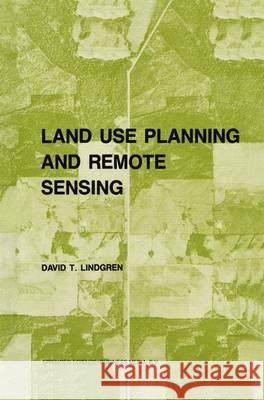Land Use Planning and Remote Sensing » książka
Land Use Planning and Remote Sensing
ISBN-13: 9789048182848 / Angielski / Miękka / 2010 / 176 str.
The purpose of this book is to introduce land planners to the principles of remote sensing and to the applications remote sensing has to the land planning process. The potential applications to land planning are many and varied. For example, remote sensing techniques, and aerial photography in particular, can provide planners with an overview of their communities they can obtain in no other way. These same techniques can also provide planners with a whole variety of land resource data and have the capability of updating these data on a syste- matic basis. Maps, too, can be produced from a combination of remote sensing and cartographic techniques - engineering maps, topographic maps, property maps, and a host of other thematic maps. These maps and the photos from which they are made can be used by planners to explain proposed land use or zoning changes at public meetings. They may also be introduced as evidence in courts of law if later the results of these changes are contested by individual or groups of landowners. Since land planning tends to be conducted at local levels, the discussion in this book focuses on the uses of aerial photography - the most effective tool for small area analysis. The discussion is also directed at those who are not regular users of remote sensing techniques.











